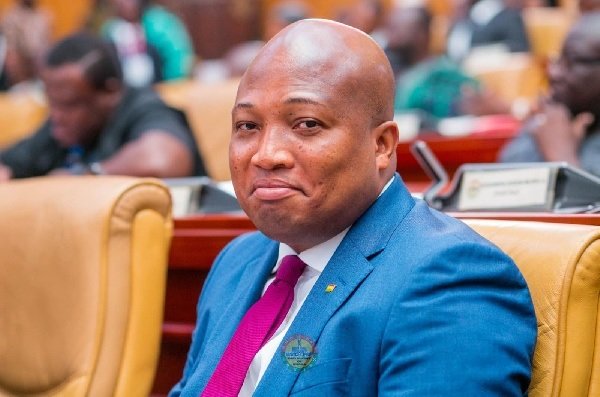Parliament Confirms Samuel Okudzeto Ablakwa, Kwabena Mintah Akandoh, and 10 Ministerial Nominees

In a landmark decision in early 2025, Ghana’s Parliament confirmed the appointment of Samuel Okudzeto Ablakwa as Foreign Affairs Minister and Kwabena Mintah Akandoh as Health Minister, along with 10 other nominees for various ministerial positions. Despite controversy surrounding some of the nominations, including that of Ablakwa, Parliament proceeded with the confirmations, showcasing the complexities of political dynamics in Ghana’s governance.
Background on the Nomination Process
The confirmation process of ministerial nominees in Ghana is a critical step in shaping the country’s governance and policy direction. Parliament, particularly the Appointments Committee, plays a vital role in vetting nominees proposed by the President. After public hearings and scrutiny, the committee reports its findings to the plenary for a final vote.
This year, the vetting process has been particularly contentious, with certain nominations sparking intense debate, especially from the Minority caucus in Parliament. In the case of Samuel Okudzeto Ablakwa, his confirmation was marred by significant opposition from the Minority, leading to a symbolic boycott of the process.
The Controversy: Samuel Okudzeto Ablakwa’s Nomination
The Minority’s Objection

Samuel Okudzeto Ablakwa, a former Deputy Minister for Education and a key figure in Ghana’s political landscape, was nominated to head the Ministry of Foreign Affairs. His nomination, however, was met with fierce opposition from the Minority Members of Parliament (MPs). The Minority argued that his track record in handling sensitive national issues raised serious concerns about his suitability for the prestigious foreign policy role.
Ablakwa’s involvement with the “Operation Recover All Loot” (ORAL) committee, tasked with investigating financial irregularities within the government, became a central issue in the dispute. The Minority viewed his leadership in this area as controversial, raising doubts about his impartiality and effectiveness.
The Boycott
In protest, the Minority MPs abstained from the vetting process, a move they hoped would signal their disapproval of Ablakwa’s appointment. Their boycott was a symbolic gesture aimed at sending a clear message to the President and Parliament that they did not support his nomination due to concerns about corruption and leadership transparency.
However, despite the absence of the Minority MPs, Ablakwa’s nomination was approved in a highly contested vote. The Majority caucus supported him, underscoring the political divide that has come to define much of the current parliamentary proceedings.
The Confirmation of Kwabena Mintah Akandoh
While Ablakwa’s appointment stirred debate, Kwabena Mintah Akandoh, nominated for the Ministry of Health, sailed through the vetting process with minimal opposition. Akandoh, a former Member of Parliament for Juaboso and a seasoned politician, was widely respected across party lines for his calm demeanor and strong track record in public service.
His appointment to the Health Ministry is expected to be a significant move in Ghana’s ongoing healthcare reforms. The country has faced challenges in the health sector, including inadequate facilities, personnel shortages, and funding gaps. Akandoh’s experience in handling these matters, particularly during his tenure in Parliament, positions him as a potential asset in driving meaningful health policy changes.
Other Ministerial Nominees
In addition to Ablakwa and Akandoh, Parliament also confirmed 10 other ministerial nominees, who will be expected to take charge of various government sectors. The nominees, many of whom are experienced professionals with extensive backgrounds in their respective fields, bring a mix of skills and expertise to the table.
The full list of confirmed nominees includes individuals tasked with overseeing critical sectors such as education, infrastructure, agriculture, and energy. Their appointments are seen as crucial in driving the government’s agenda for national development.
The Impact of the Confirmation
Political Polarization
The confirmation of the ministerial nominees has led to further polarization within Ghana’s political landscape. The Minority’s refusal to partake in the vetting process has highlighted the deepening divisions between the two major political factions, the New Patriotic Party (NPP) and the National Democratic Congress (NDC).
This rift is likely to affect the smooth functioning of Parliament in the coming months, particularly on issues requiring cross-party support. The Minority’s boycott signals a growing dissatisfaction with the current administration and its handling of corruption and governance issues.
Public Perception
The public’s trust in the political process has been further challenged by the controversy surrounding Ablakwa’s nomination. Allegations of corruption and misuse of power have dominated the political discourse, casting a shadow over the confirmation process. Public perception of the government’s commitment to anti-corruption efforts may be affected by how these concerns are addressed going forward.
Conclusion
The confirmation of Samuel Okudzeto Ablakwa and Kwabena Mintah Akandoh, alongside 10 other nominees, marks a significant moment in Ghana’s political landscape. While the approval of Ablakwa and Akandoh demonstrates the government’s political strength, the controversies surrounding their nominations underscore the challenges of balancing political interests with public expectations for transparency and accountability.
As the new ministers take office, all eyes will be on their performance and their ability to navigate the complex political terrain that continues to shape Ghana’s future. The confirmation process, though concluded, is far from over in the public’s eye, and the government must work diligently to rebuild trust and focus on the country’s development.


